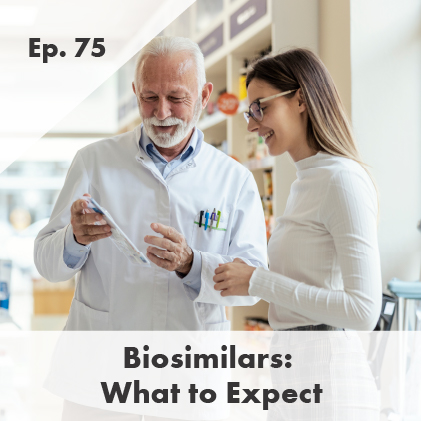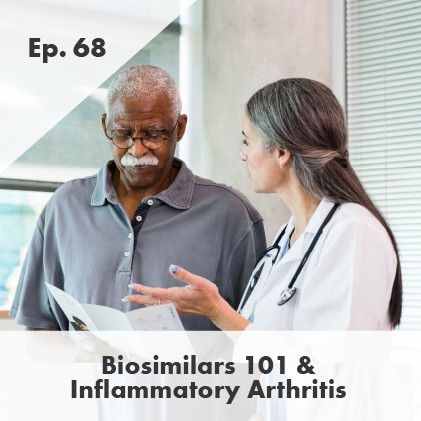Biologics & Biosimilars
More biologic medications will become available soon in the U.S., creating options and access to more people. These “biosimilars” have been shown to be as effective and safe as existing biologics. Learn about the similarities and differences between biologics, unbranded biologics and new biosimilars.
"I think people should try to be reassured that these drugs are high quality. They are highly similar. The likelihood of them not doing exactly the same thing is infinitesimally low."
Mark Box, MD
What Are Biosimilars?
Are Biosimilars Safe?
Biosimilars FAQs
What is a biosimilar?
How is a biosimilar different from other biologics?
Are biosimilars generic drugs?
Will biosimilars cost less?
What is an unbranded biologic?
Is it safe to switch from a reference biologic to a biosimilar?
10 Things to Know
Questions for Your Doctor
New Kinds of Biologics
Biosimilars at a Glance
Our Position
Biologics Basics
Biosimilars Webinar
A rheumatologist discusses biosimilars, insurance coverage and out-of-pocket costs. He also explains “interchangeability” laws and how they might affect you if you currently take or might take biologic medications.
One Family’s Experience
Switching to a Biosimilar
Leeza Broome was worried when their insurance switched her child from a brand-name biologic to a biosimilar. Despite their fears, the transition went smoothly, and her child is thriving.
Live Yes! With Arthritis Podcast
Biosimilars: What to Expect
If you take a biologic drug to manage your arthritis, you might be facing some unexpected decisions as more competitors to brand-name biologics — called biosimilars — become available in the U.S. This year, at least eight biosimilars to the self-injectable biologic Humira are coming to market. Learn more about these drugs and what questions to ask your doctor and insurance company.
Listen Now

Live Yes! With Arthritis Podcast
Biosimilars 101 & Inflammatory Arthritis
Access will soon expand for new biologic treatments for inflammatory arthritis called biosimilars. Learn what they are, what to expect when taking one, including safety and effectiveness, and how determine if they are right for you.
Listen NowWe would like to thank the following companies for their support of our biosimilar education resources:


